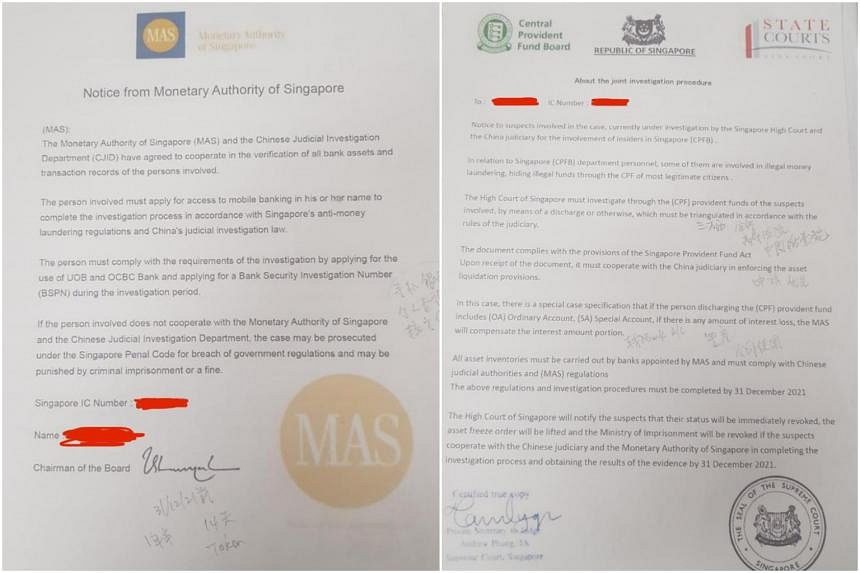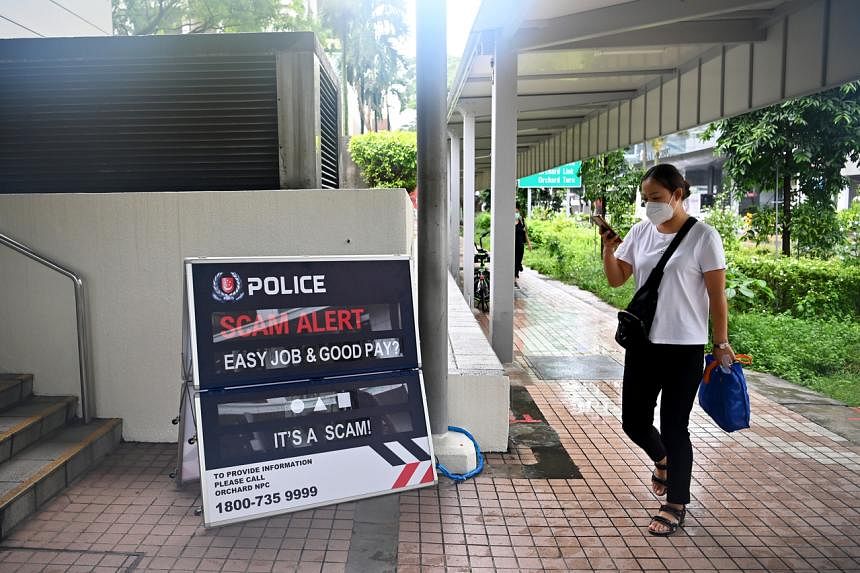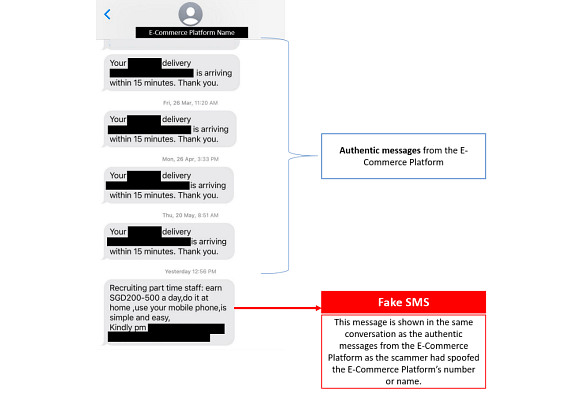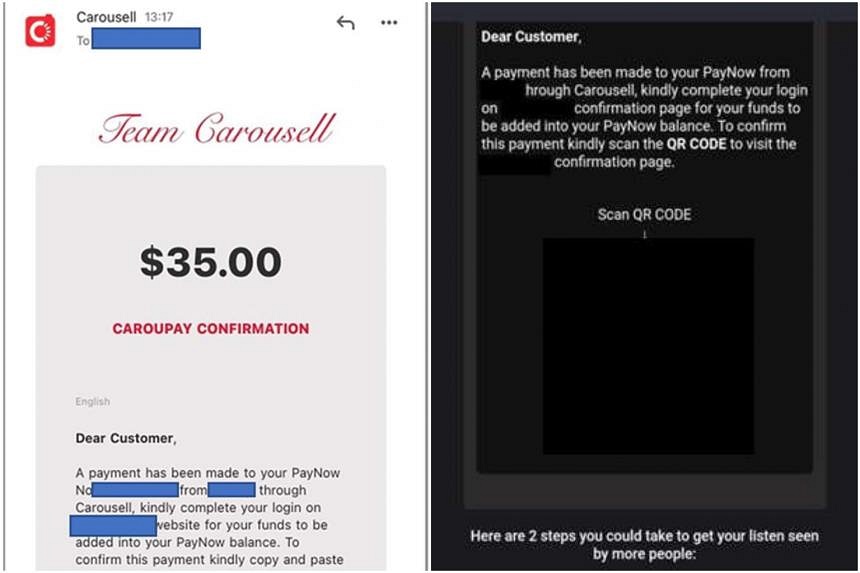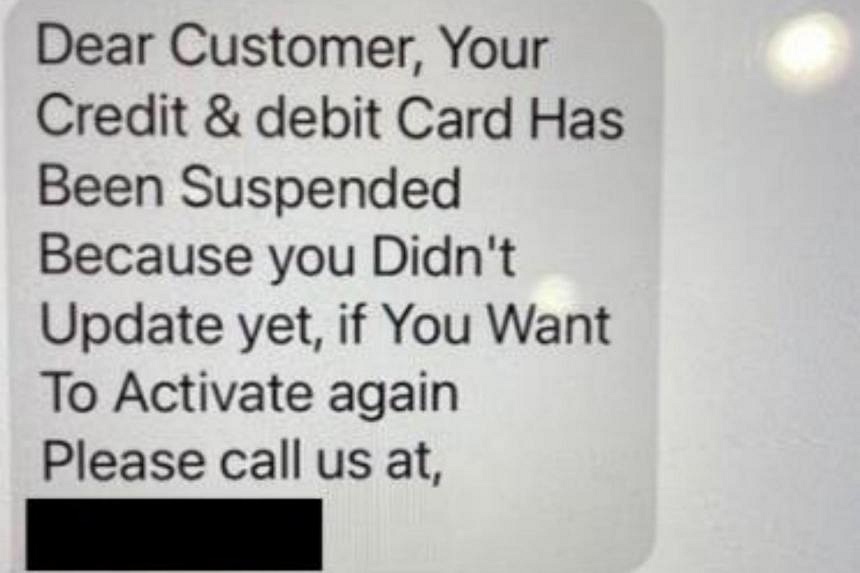- Joined
- Jul 25, 2008
- Messages
- 13,876
- Points
- 113
Hawkers under DBS scheme to get scam awareness workshops after some fell prey to fake e-payments

Minister for Home Affairs and Law K. Shanmugam (right) at Chong Pang Market and Food Centre for the launch of DBS' group-buy scheme. ST PHOTO: ONG WEE JIN

Isabelle Liew
APR 6, 2022
SINGAPORE - Hawkers under a programme by DBS Bank will be taught how to identify genuine money transfers and keep their banking and payment details safe and secure, after it was reported last year that some had been cheated by customers.
In these cases, the opportunistic customers would show the hawkers screenshots of fake or old transactions as proof of payment, a DBS spokesman said on Wednesday (April 6).
The bank's Adopt-a-Hawker Centre programme was introduced in September 2021 with the aim of equipping hawkers with digital tools to build their online presence.
It announced the new anti-scam element to the programme at the initiative's launch at Chong Pang Market and Food Centre - the fourth centre under the programme - in Yishun on Wednesday.
The other three are Tanjong Pagar Plaza Market and Food Centre, Chinatown Complex and The Marketplace @ 58 in New Upper Changi Road.
Mr Shee Tse Koon, DBS Singapore country head, noted the need for the anti-scam workshops as more hawkers are using SGQR to enjoy the convenience of e-payments.
SGQR is a single-payment QR code that combines the payload details of different electronic payment schemes that a merchant or business accepts.
"We see this as a natural extension of our ongoing efforts to educate the public on the latest scam scenarios, where we have also dedicated a lot of resources to safeguard our customers from fraudsters," he said.
The bank will partner the Infocomm Media Development Authority for the digital workshops, which will look at helping hawkers correctly identify genuine transactions made by their customers.
It also aims to familiarise them with the NetsBiz app, which now includes larger fonts, distinct payment alerts and colours to highlight new transactions.
Minister for Home Affairs and Law K. Shanmugam, who is an MP and grassroots adviser for Nee Soon GRC, said it is important to help hawkers go digital safely to keep up with changes brought on by the Covid-19 pandemic.
He said: "This will safeguard their businesses and allow us to preserve this important part of Chong Pang's identity."
Madam Ong Soo Hoon, 63, who runs a dessert stall at Chong Pang food centre, said she found QR code payments convenient as it cuts down her trips to the bank to deposit her takings.
Asked if she would attend the workshops, she said: "More people are getting scammed these days and this makes me worried as I'm not good with technology. But I'll attend only if they are held in Mandarin."
DBS has said the workshops will be conducted in English.
Hawkers in Singapore scammed by fake screenshots of e-payments from customers
Social media abuzz with support for elderly hawkers who are not tech-savvy
Mr Hamzah Mohamed, 49, who works at an ayam penyet stall, said he had to check each payment made through QR code since the stall introduced it last year.
"It is troublesome although it is easier for customers, especially the younger ones," he added.
The programme also involves weekly bulk buys by DBS across the four hawker centres. On Wednesday, 500 meals were bought from six hawker stalls in Chong Pang food centre and distributed to front-line workers at Khoo Teck Puat Hospital and Yishun Polyclinic by DBS staff volunteers.
A campaign to promote the use of DBS PayLah!-enabled QR code payments will also run from now till May 31.
Customers can collect a stamp with a minimum $3 purchase using DBS PayLah! at hawker stalls in the north, north-east and east regions. They will get $1 cashback with each completed stamp card of two stamps, capped at two stamp cards for every customer.








